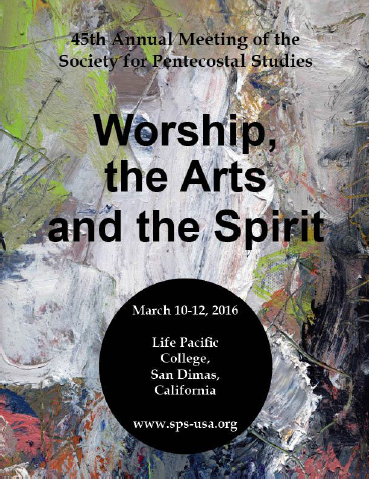“From the Road to Emmaus to the Day of Pentecost: An Old Testament Survey from a Pentecostal Perspective”
Description
This paper discusses a major publication project that the authors have undertaken with Abingdon Press to create a new Old Testament Survey textbook from the perspective of Pentecostal faith and practice. The authors address the need and rationale for this project as well as the distinctive approach being taken and format being followed, with a sample chapter (on the book of Hosea) presented at the end. The book is being designed primarily as an introductory college textbook for freshmen in the authors’ own undergraduate teaching context. Yet, in its commitment and attention to the dynamic interplay between Word and Spirit and between scholarship and spirituality, it could have an appeal that reaches throughout and even beyond Pentecostal and charismatic circles. A biblical “handle” on the authors’ approach is drawn from the contrast between the disciples on the road to Emmaus (at the end of Luke) and Peter on the Day of Pentecost (at the beginning of Acts) in regard to the different capacities they exhibit for grasping the sweep of the Hebrew Scriptures or, what one might call, “a survey of the Old Testament”. For this is essentially what Jesus gives the disciples on the Emmaus Road and what the Holy Spirit inspires Peter to give on the Day of Pentecost.
“From the Road to Emmaus to the Day of Pentecost: An Old Testament Survey from a Pentecostal Perspective”
This paper discusses a major publication project that the authors have undertaken with Abingdon Press to create a new Old Testament Survey textbook from the perspective of Pentecostal faith and practice. The authors address the need and rationale for this project as well as the distinctive approach being taken and format being followed, with a sample chapter (on the book of Hosea) presented at the end. The book is being designed primarily as an introductory college textbook for freshmen in the authors’ own undergraduate teaching context. Yet, in its commitment and attention to the dynamic interplay between Word and Spirit and between scholarship and spirituality, it could have an appeal that reaches throughout and even beyond Pentecostal and charismatic circles. A biblical “handle” on the authors’ approach is drawn from the contrast between the disciples on the road to Emmaus (at the end of Luke) and Peter on the Day of Pentecost (at the beginning of Acts) in regard to the different capacities they exhibit for grasping the sweep of the Hebrew Scriptures or, what one might call, “a survey of the Old Testament”. For this is essentially what Jesus gives the disciples on the Emmaus Road and what the Holy Spirit inspires Peter to give on the Day of Pentecost.





